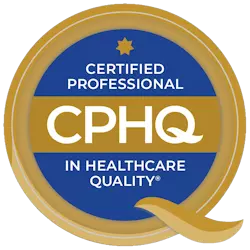What is MRSA?
Methicillin-resistant Staphylococcus aureus (MRSA) is a bacterium that causes a variety of different infections, including infections of the skin (cellulitis and skin abscess), blood (bacteremia), bone (osteomyelitis), and joint (septic arthritis) among others.
How Common Is MRSA?
According to the Centers for Disease Control and Prevention (CDC), MRSA is among the most common causes of bacterial infections in the United States. In 2017, an estimated 119,207 bloodstream infections with 19,832 associated deaths occurred.
How Is MRSA Spread?
Most MRSA infections occur in people who have been in hospitals or other health care settings, such as nursing homes and dialysis centers. When MRSA occurs in these settings, it is known as health care-associated MRSA (HA-MRSA). HA-MRSA infections usually are associated with invasive procedures or devices, such as surgeries, intravenous catheters or artificial joints.
HA-MRSA can also be spread by healthcare workers. Although Healthcare workers generally wash their hands routinely, they can still easily acquire MRSA (among other microorganisms) from contaminated surfaces and other interactions in the healthcare environment. If this happens, they can then potentially transmit the infection to others.
Another type of MRSA infection occurs outside of healthcare settings, and is called community-associated MRSA (CA-MRSA). This form is usually spread by skin-to-skin contact, and often begins as a painful skin boil. At-risk populations include groups such as child-care workers, people who live in crowded conditions and high school wrestlers. In fact, CA-MRSA infections have been reported among many college and high school athletes across the U.S., as well as professional football players. More recently, livestock-associated MRSA (LA-MRSA) strains have also become a point of epidemiological interest.
The CDC and the Florida Department of Health summarize the risk factors for MRSA infection and transmission as the “five Cs”:
- Crowding (prisons, military barracks, homeless shelters)
- Contact (frequent skin-to-skin, athletic teams)
- Compromised skin (cuts, scrapes)
- Contaminated items and surfaces (locker rooms, gym facilities)
- Lack of Cleanliness
What steps can be taken to reduce the risk of MRSA infection?
As might be expected based on the risk factors listed above, the CDC reports that risk of MRSA infection can be reduced by maintaining good hand and body hygiene — especially after exercising, participating in team sports or visiting high-risk MRSA areas such as health care facilities. It is also advisable to keep any cuts, scrapes, or open wounds clean and covered until they are healed. Sharing of personal items such as towels and razors should also be avoided.
How is MRSA treated?
While MRSA infections can be very serious and even life-threatening, treatment options exist. Decisions such as which antibiotic to take, for how long and by what route, and whether or not a patient may need surgery, are all important decisions that health care teams consider in helping patients achieve a cure as quickly as possible.
An Infectious Diseases Expert, with extensive experience diagnosing and treating patients with MRSA infections, may be able to assist in identifying causation, as well as determining whether or not the standard of care was met in the diagnosis and management of a patient with an MRSA infection.
References:
Abdelzaher et al. 2010
Anderson, UptoDate, accessed 05/02/2023
www.cdc.gov/mrsa
Florida Department of Health 2016
Kazakova et al NEJM 2005
MMWR 2019;68:9:214-219
Mogen and Rice. Why We Should be concerned about MRSA. 2015 http://edis.ifas.ufl.edu
https://www.mayoclinic.org/diseases-conditions/mrsa/symptoms-causes/syc-20375336
Rihn, Michaels, and Harner 2005
Witte et al. 2007
Wulf and Voss 2008
Wulf et al. 2012



